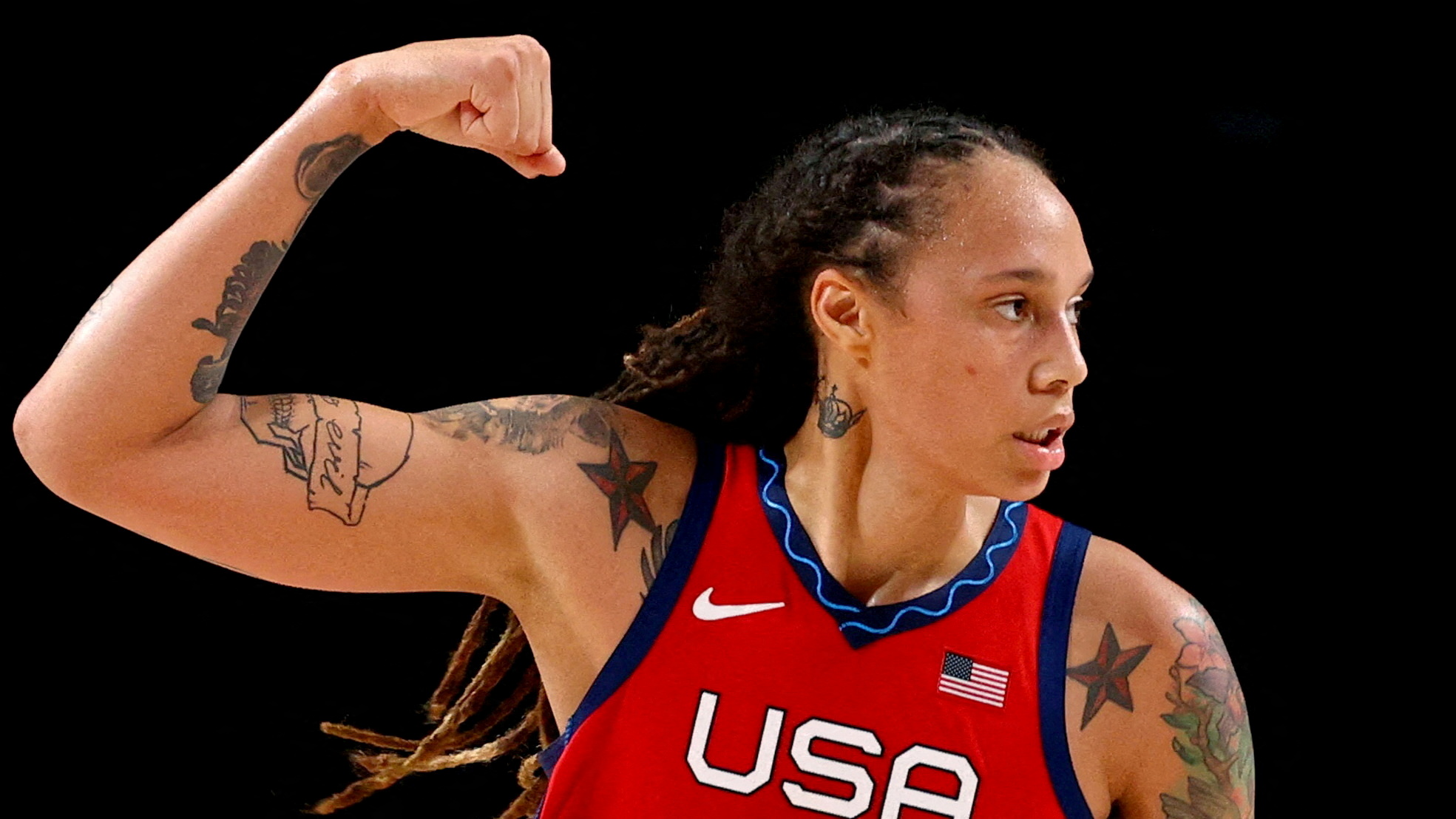In recent years, the conversation surrounding gender identity has become increasingly prominent, and one name that often comes up in this dialogue is that of Britney Griner. As a professional basketball player, she has made headlines not just for her incredible skills on the court, but also for her openness about her identity. The question "Britney Griner male?" has surfaced frequently, prompting discussions about gender, societal norms, and personal expression. Griner's journey is a reflection of the complexities of identity and the importance of understanding the nuances that come with it. This article aims to explore her life, experiences, and the ongoing discussions regarding her gender identity.
As we dive deeper into the topic of Britney Griner's gender identity, it is essential to first understand her background and career. Griner, who plays as a center in the Women's National Basketball Association (WNBA), has garnered attention for her exceptional talent and physical prowess on the court. However, her personal life and the way she identifies herself have sparked conversations that go beyond sports, delving into the realms of gender perception and societal expectations.
The inquiries surrounding "Britney Griner male?" highlight the broader issue of how society perceives gender and the importance of respecting individuals' self-identification. Griner's journey serves as an important case study in understanding these dynamics, making it crucial to explore her biography, personal details, and the impact she has had on the conversation about gender identity.
- Is Justin Bieber Dead Unraveling The Truth Behind The Rumors
- Unraveling The Mystery Of What Fors Llaw Mean
What is Britney Griner's Biography?
Britney Griner was born on October 18, 1990, in Houston, Texas. Known for her towering height and remarkable athleticism, Griner quickly made a name for herself in the world of basketball. After excelling at Nimitz High School, she went on to play for Baylor University, where she achieved significant success, including winning a national championship and being named the NCAA Player of the Year. She was subsequently drafted as the first overall pick in the 2013 WNBA Draft by the Phoenix Mercury.
| Personal Details | Bio Data |
|---|---|
| Name | Britney Griner |
| Date of Birth | October 18, 1990 |
| Height | 6 ft 9 in (2.06 m) |
| Position | Center |
| College | Baylor University |
| WNBA Team | Phoenix Mercury |
How Does Britney Griner Identify?
Britney Griner openly identifies as a lesbian and has been an advocate for LGBTQ+ rights throughout her career. Her visibility as a queer athlete in a prominent sport has contributed to breaking down barriers and fostering discussions about gender and sexuality within the realm of sports. Griner's journey of self-acceptance and her willingness to share her truth has resonated with many, encouraging others to embrace their identities.
Why Has the Question "Britney Griner Male?" Emerged?
The question "Britney Griner male?" often arises from societal perceptions of gender norms and the expectations surrounding physicality in sports. Griner's height and athletic build lead some to question her gender identity, reflecting a lack of understanding about the diversity of gender expression. It is crucial to recognize that gender is not solely defined by physical attributes, and Griner’s identity is a testament to this complexity.
- Unraveling The Height Mystery How Tall Is Tommy Flanagan
- Uncovering The Origins Where Is Lamine Yamals Mom From
What Role Does Media Play in Perceptions of Gender?
The media plays a significant role in shaping public perceptions of gender identity. Coverage of athletes like Britney Griner can influence societal attitudes and either challenge or reinforce stereotypes. Misrepresentation or sensationalism can lead to misunderstandings about individuals' identities, making it imperative for media outlets to approach these topics with sensitivity and accuracy. Griner’s experiences illustrate the importance of responsible journalism in fostering an inclusive dialogue.
How Has Britney Griner Influenced the Conversation About Gender Identity?
Britney Griner’s presence in the sports world has sparked vital conversations about gender identity and representation. As a high-profile athlete, her openness about her sexual orientation and gender identity has encouraged discussions that extend beyond the basketball court. Griner’s advocacy for LGBTQ+ rights and her experiences as a queer athlete have inspired many to explore their identities more freely.
What Challenges Has Griner Faced as a Lesbian Athlete?
Despite her success, Griner has faced challenges related to her identity as a lesbian athlete. She has spoken candidly about the discrimination and prejudice she has encountered, both within and outside the sports community. These experiences highlight the ongoing struggles many LGBTQ+ individuals face in various spheres, including athletics. Griner's resilience in the face of adversity serves as a powerful example of the importance of acceptance and understanding in sports and society.
What Can Society Learn from Britney Griner's Story?
Britney Griner’s story is a compelling reminder of the complexities of gender identity and the importance of creating a more inclusive society. Her experiences encourage individuals to embrace their authentic selves while fostering acceptance and respect for others, regardless of their gender identity or expression. By engaging in open conversations about these topics, society can work towards dismantling harmful stereotypes and fostering a culture of inclusion.
Conclusion: Embracing Diversity in Gender Identity
In conclusion, the question "Britney Griner male?" serves as a catalyst for deeper discussions about gender identity, representation, and acceptance. Britney Griner’s journey as a professional athlete and her openness about her identity highlight the importance of understanding and respecting individual experiences. By learning from her story, society can strive towards a more inclusive future where everyone is free to express their true selves without fear of judgment or discrimination.


